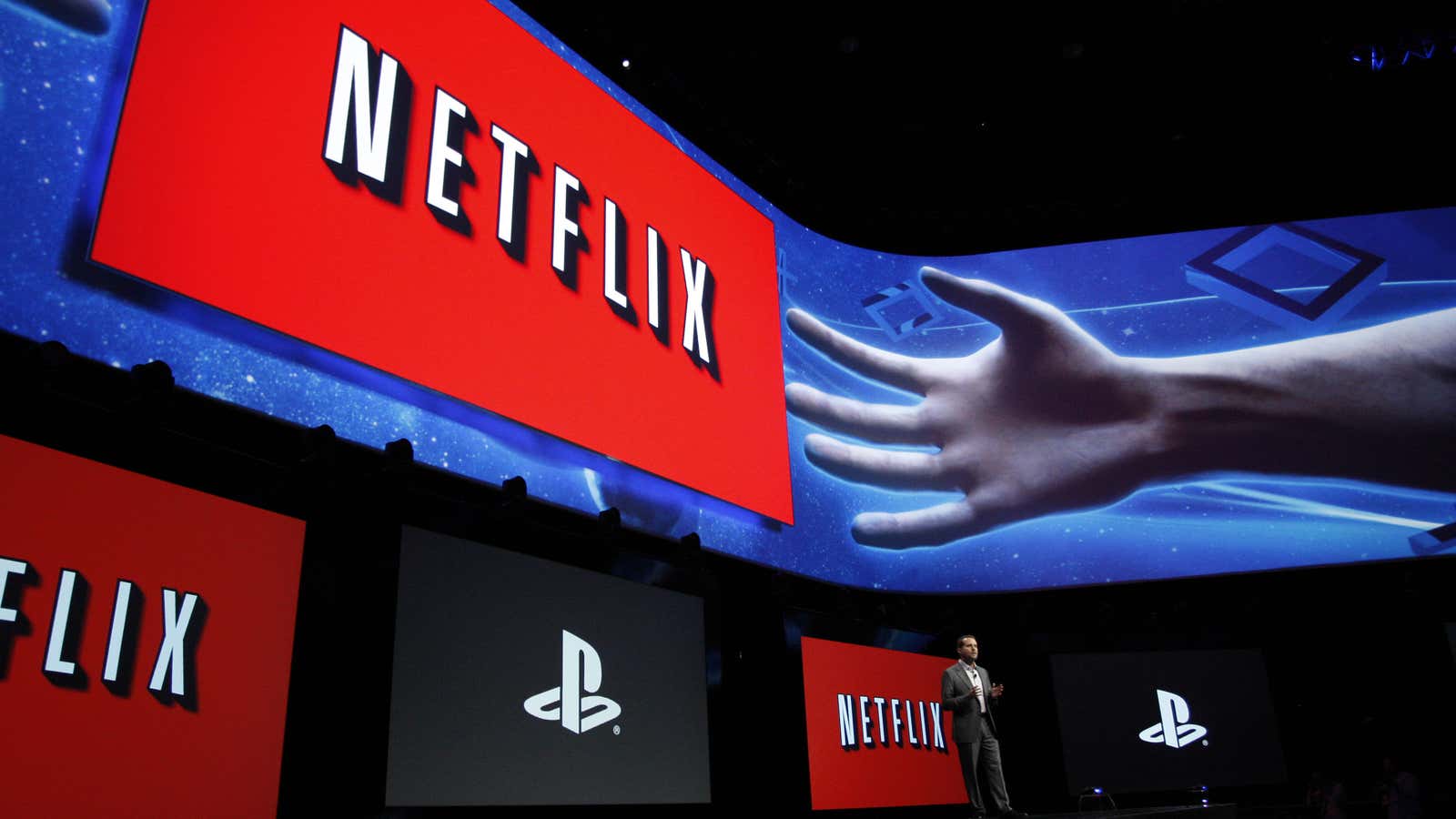Netflix recently updated its “long-term view,” the company’s refreshingly candid assessment of its place within the internet video industry. Which means, if you care about Netflix, you should go read it now. Or better yet, read BTIG analyst Rich Greenfield’s assessment of what has changed from the last version (registration required). He was the first to spot this strategy update.
To me, the most significant shift relates to how Netflix views the competition.
∙ Less than a year ago, in October 2012, CEO Reed Hastings wrote, “Hulu is currently our closest US competitor.” Behind Hulu, according to Hastings, were Amazon and HBO.
∙ A few months later, in June 2013, Hastings had a different view: “The network that we think likely to be our biggest long-term competitor-for-content is HBO.” Hulu was relegated to third place, behind Amazon.
∙ Most recently, HBO has remained at the top of Netflix’s list of competitors. But the newly updated “long-term view” document takes a more expansive view of what counts as competition. Here’s the relevant paragraph, with the new text highlighted:
We compete very broadly for a share of members’ time and spending, against linear networks, DVDs, other internet networks, video games, web browsing, magazine reading, video piracy, and much more. Over the coming years, most
otherof these forms of entertainment will improve. Consumers will choose and consume from multiple options.
Netflix is simply acknowledging that it doesn’t just compete with other TV networks (although, in another change to the document, Netflix calls itself a “movie and TV series network” for the first time). It also competes for attention with nearly any kind of leisure activity.
That may not seem revelatory, but it’s rare for media companies to think of their competition as extending beyond discrete industries like news or music or television. If you’re in book publishing, say, the reality is that you don’t just have to think about the shift from paper to tablets. You also need to worry about whether people will use their tablets to read, or instead prefer to surf the web, watch movies, etc. (That’s why e-readers were nice while they lasted.)
For Netflix, expanding its view of the competition is smart while many in the industry view themselves in a silo. It’s still common to make distinctions between cable TV and internet TV, but the difference is fading. In the end, it will all—all—just be stuff you can get on the internet.
